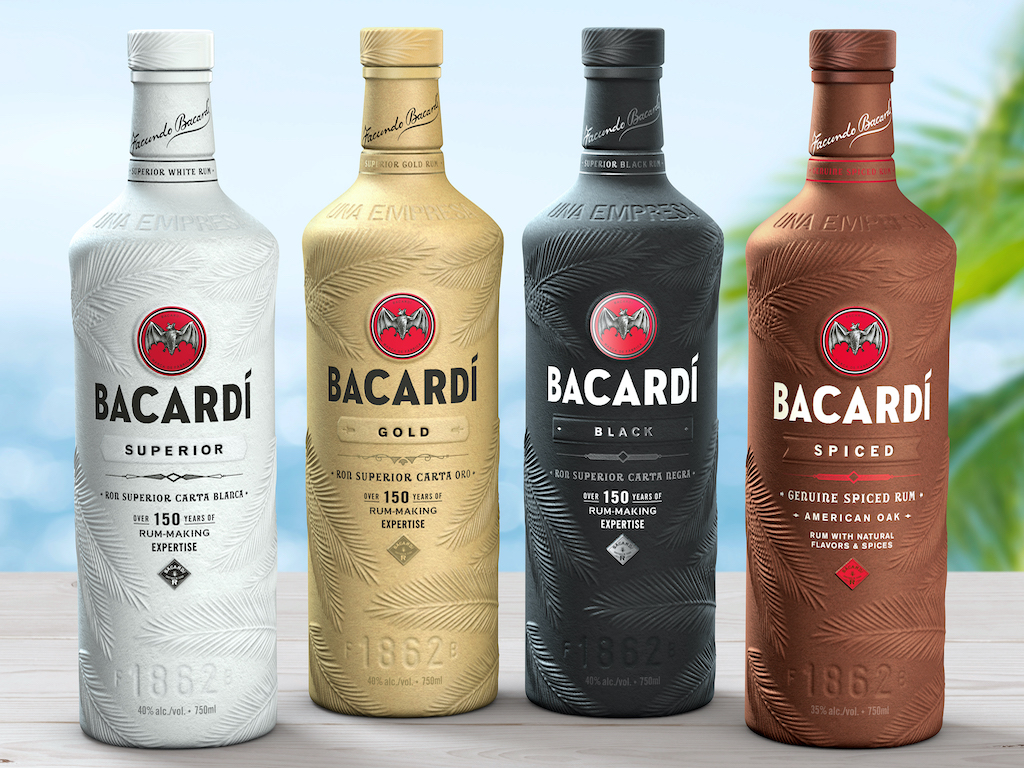3 Mins Read
Bacardi, the world’s biggest family-owned spirits brand famous for its white rum, has announced that it will be replacing its existing plastic packaging for a new 100% biodegradable bottle. Partnering with Danimer Scientific, the developer of the new PHA-based bottles, the spirits giant says that it will be putting the “world’s most sustainable spirits bottle on shelves by 2023”.
Bacardi plans to eliminate at least 80 million plastic bottles it produces each year across its portfolio brands each year with a new 100% biodegradable version developed by Bainbridge, Georgia-based biopolymer firm Danimer Scientific. The company’s new bottle is made from its patented Nodax PHA, a material derived from the natural oils of plant seeds such as palm, canola and soy.
It delivers the biodegradability that consumers demand without losing the quality feel they receive from traditional plastic. The material provides the best of both worlds.
Scott Tuten, Chief Marketing & Sustainability Officer at Danimer Scientific
Unlike conventional petroleum-based plastics, this new “wonder material” will disappear within 18 months without leaving behind any microplastics and can naturally biodegrade in soil, compost and water, verified by the University of Georgia in a 2018 study. According to Bacardi, using Nodax PHA, which has been FDA-approved for food contact, will help the company save as much as 3,000 tons of plastic annually.
“[Nodax PHA] delivers the biodegradability that consumers demand without losing the quality feel they receive from traditional plastic. The material provides the best of both worlds,” explains Scott Tuten, chief marketing and sustainability officer at Danimer Scientific.
The first products that will appear in the new bottle will be its flagship product is Bacardi Rum, followed by many of its iconic brands including Bombay Sapphire gin, Grey Goose vodka, Patrón tequila, Martini vermouth and Dewar’s Scotch whisky. Bacardi says that the new plant-based PHA bottles will then replace all single-use plastic bottles across its entire supply chain.
“We’re excited to be pioneering this new biopolymer technology for the benefit of all Bacardi brands and the entire spirits industry,” said Ned Duggan, senior vice president of Bacardi Rum.
It may sound small, but add that up across every bottle produced globally and we’re talking many tons of plastic every day. Once we’ve fixed the problem, we’ll be open sourcing the solution for the entire industry to use. This isn’t about competitive advantage, it’s about doing the right thing for the planet.
Jean-Marc Lambert, SVP of Global Operations at Bacardi
Bacardi will additionally be integrating Danimer’s Nodax PHA polymer to create a new sustainably sourced paper bottle to replace those currently appearing in glass and eliminate one of the beverage industry’s biggest pollution hurdles – the plastic lining of bottle closures – and once the company has successfully tested will be sharing with the rest of the industry. These initiatives are a part of a company-wide plan to become 100% plastic-free by 2030.
“It may sound small, but add that up across every bottle produced globally and we’re talking many tons of plastic every day. Once we’ve fixed the problem, we’ll be open sourcing the solution for the entire industry to use. This isn’t about competitive advantage, it’s about doing the right thing for the planet,” explained Jean-Marc Lambert, senior vice president of global operations for Bacardi.
Multiple other drinks giants have also started to introduce more sustainable alternatives for glass and plastic bottles in recent months as the industry faces greater pressure to clean up its act. In July, Scotch whisky makers Johnnie Walker said it will launch a new 100% plastic-free bottle made from paper next year as a part of its collaboration with eco packaging company Pulpex.
Carlsberg and Coca-Cola, on the other hand, have placed their bets on an “all plant” compostable bottle developed by Dutch biochemicals firm Avantium, which is manufactured using plant sugars sourced from biowaste to instead of fossil fuels and is also biodegradable and recyclable.
Lead image courtesy of Bacardi.




